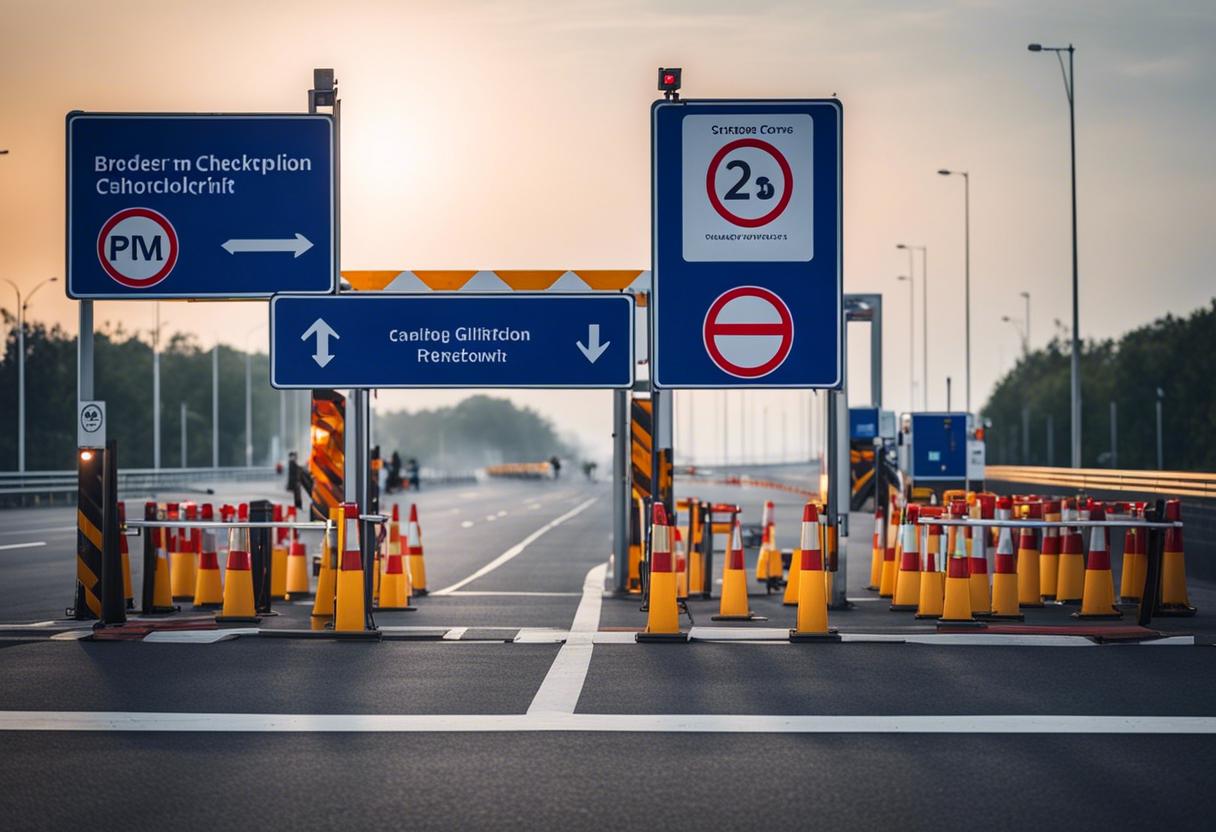The UK government’s post-Brexit border creation initiative has encountered setbacks including technical issues, escalating its financial demands to a minimum of £4.7 billion, or €5.5 billion, an investigation by the National Audit Office (NAO) revealed. The government had previously committed to creating the “most effective global border” by next year to facilitate international trade.
However, the main tech required to enable an advanced digital border is encountering numerous significant difficulties per the report on the government’s 2025 Border Strategy that was released on Monday. The report suggested that the programme’s goals and delivery deadlines appear overly buoyant and persistently underestimate the complexity of the project.
The upcoming UK border is envisioned as a central hub catering to import, export, and transit documentation under a framework known as a “single trade window”. Despite this, the NAO identified a lack of a holistic governmental execution strategy for the initiative, which HM Revenue & Customs declares will be rolled out progressively by 2027.
This subdued evaluation from the NAO comes a month following the implementation of post-Brexit border inspections on EU food and plant imports affected by digital troubles, resulting in broad frustration among transporters and importers.
The NAO stated further that the Home Office was encountering problems with launching a new digital system, named Cerberus, meant for the next border phase in October, when all goods will need to be accompanied by supplementary “safety and security declarations”. The NAO stated that Cerberus still needs to address some legal obstacles to allow data sharing with law enforcement bodies.
Gareth Davies, NAO’s head, suggested the government requires improved planning across Whitehall and a more grounded approach towards the digital shift to successfully establish the new digital border. Meg Hillier, the chair of the House of Commons’ public accounts committee, commented on the sequence of delays and modifications, arguing that a clearer vision and superior planning could have prevented these, a recurring theme observed across different governmental departments.
The UK’s border transformation process has been plagued by changes of direction and postponements, resulting in unnecessary expenditure from the public budget, according to recent reports. Around £62 million was used for a customs station in Dover that subsequently became redundant, with a further £258 million allocated for eight temporary border establishments in response to anticipated increased demand, but these facilities ultimately remained unused.
Why has housing construction seen a sudden increase in this region?
Deloitte and IBM were given a £150 million contract in May of the previous year to initiate the first phase of the £349 million one-stop trade programme, yet this project is running considerably behind schedule, according to the NAO’s findings. The cost of Brexit border operations, which totalled £2.6 billion, encompassed £531 million spent over the four years between 2020 and 2024 on a system intended to assist UK traders in dealings with Northern Ireland, as stated by the NAO.
However, trading professionals claim to have seen minimal enhancements to these systems. Anna Jerzewska of the advisory operation Trade & Borders commented that the majority of traders view this as an added financial burden with an increased administrative workload.
She suggested that the past record of the UK’s customs computer software indicates that in the forthcoming years, the one-stop trade programme is unlikely to reach full completion.
David Henig, the UK director at the International Political Economy’s European Centre, expressed that the NAO’s review highlighted the discrepancy between the government’s sayings on border affairs and the actual experiences of traders.
He commented that the government’s unrealistic assurances of global ascendancy and minimal additional expenses for traders eventually replaced the need for effective strategic planning by the ministers.
The lack of effective collaboration across government departments and businesses has hampered the UK’s efforts, as per Marco Forgione, the director-general of the Institute of Export & International Trade. In response, the cabinet office asserts they are making significant headway with the border implementation process, with post-Brexit import checks set to be introduced this year in a manner which aims to minimise disruption.
A representative added, “In a bid to assist traders, we are also unveiling the one-stop trade programme, a sole secure portal which will simplify the process for traders when importing goods.”
Our Inside Business podcast is released on a weekly basis – locate the most recent episode here. – Copyright The Financial Times Limited 2024

